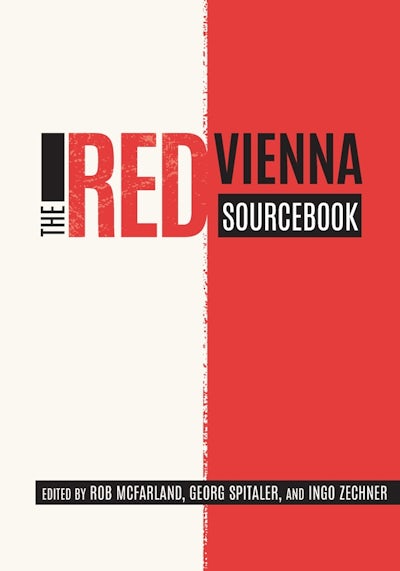Edited by Rob McFarland, Georg Spitaler, and Ingo Zechner (link). Immediately after World War I, in 1919, the Austrian capital Vienna elected a Social Democratic majority that persisted until 1934. The city’s leaders, together with its intellectuals, boldly imagined a new society that would be economically just, scientifically rigorous, and radically democratic. “Red Vienna” undertook experiments in public
housing, welfare, and education while maintaining a world-class presence in science, music, literature, theater, and other fields of cultural production. Though Red Vienna eventually fell victim to fascist violence, it left a rich legacy with potential to inform our own tumultuous times. The Red Vienna Sourcebook provides scholars and students with a selection of some 280 key texts from the period, carefully translated and introduced. These texts connect readers to the era’s most fascinating discussions, movements, and personalities and will be of interest to such diverse disciplines as architecture, economics, film studies, history, Jewish studies, literary studies, music, philosophy, political science, psychology, sociology, sports, and women’s studies. Professor Gabriel Trop co-edited the following chapters: “Religion and Secularism” and “Jewish Life and Culture.”


